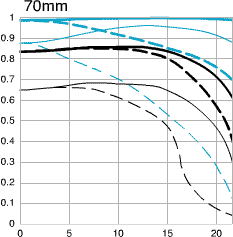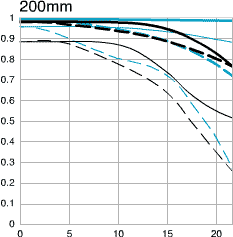TESTING METHODOLOGY
Equipment wise, for this review I will be using a Canon 60D and Canon 6D bodies. The Canon 60D has an APS-C sensor and the Canon 6D has a full frame sensor. Memory wise we will be using a SanDisk Extreme UHS-1 16 GB SD card. Off camera flash includes multiple Canon 430 EX IIs and Paul C. Buff Ensteins triggered by Pixel King Wireless TTL Flash Triggers or a Paul C. Buff Cyber Commander.
For image quality I will be taking shots in RAW format and post processing them in Adobe Lightroom 5 and/or Adobe Photoshop CC. Images will be exported at 80% quality and 800px in size on the longest edge.
Images will be taken to cover multiple photographic scenarios in order to ensure proper coverage of the lens’s abilities and faults.
GALLERY
Although I am mainly a portrait photographer, I do shoot many other genres such as sports, nature, and automobiles as well. Below are some examples of the recent work I have done with this lens.
IMAGE QUALITY ANALYSIS
Bokeh – This lens delivers excellent bokeh as you should be able to see for yourself from my gallery of examples. Most of the images are shot around f/2.8-f/4. When compared to my previous 70-200mm f/4L USM, it is much smoother and less distracting. The bokeh of the 70-200mm f/4L USM had double lines at the edges of highlights and background elements in most images. It gave them a busy look. The f/2.8L’s does not have that issue and is creamy smooth and allows for great isolation while getting rid of most of the distractions from surroundings.
Distortion – It has a little barrel distortion at the 70mm side of the zoom range and some pincushion distortion at the 200mm side. This is pretty typical with most telephoto zoom lenses. This doesn’t bother me at all as when I import images into Lightroom or Photoshop, it automatically can correct for it.
Vignetting – While it does vignette a little at f/2.8-f/4, it is easily corrected when you edit your images in Lightroom or Photoshop via the peripheral illumination correction options. And, even then, most of the time people tend to like a bit of vignette in their images, including myself, as it helps draw your eye to the subject more.
Flaring – Well, the UD elements help with color flinging and sharpness, but flaring on this lens cannot be stopped when shooting into a bright light source as the sun or flash. In normal use this will not be an issue as most don’t shoot directly into these types of light sources. I have this image as an example of the type of flaring that appears.
Sharpness – I must say, after shooting a few thousand images this year with this lens alone, IQ has been great. Shooting wide open at f/2.8 gives me some pretty sharp images. Stop it down to f/3.2 and f/4 and you will find it is very sharp, even in the corners. Though this lens is old, it is much sharper than some of the other lenses I have used. For instance, it is much sharper than my old 70-200mm f/4L USM.
Below are Canon’s MTF charts for this lens for those who would like to see them.
Here is a zoomed in portion of the bird image from the gallery. I was zoomed in at 200mm and the aperture was set at f/2.8. The detail captured on the edges of the feathers just goes to show how sharp this lens really is, even at wide open.
Color Fringing – Color fringing is almost non-existent on this lens. Only when shooting at around 200mm wide open can I see any magenta fringing in high contrast situations. Otherwise, I have yet to notice it much at all.
Review Overview
Build Quality
Optical Quality
Warranty
Price
Availability
The White Whale
The Canon EF 70-200mm f/2.8L USM is a top quality lens that delivers high IQ, fast accurate autofocus, and creamy bokeh. Although it lacks IS and weather sealing, this lens is a great value compared to its newer weather sealed brother with IS.
 Technology X Tomorrow's Technology Today!
Technology X Tomorrow's Technology Today!














